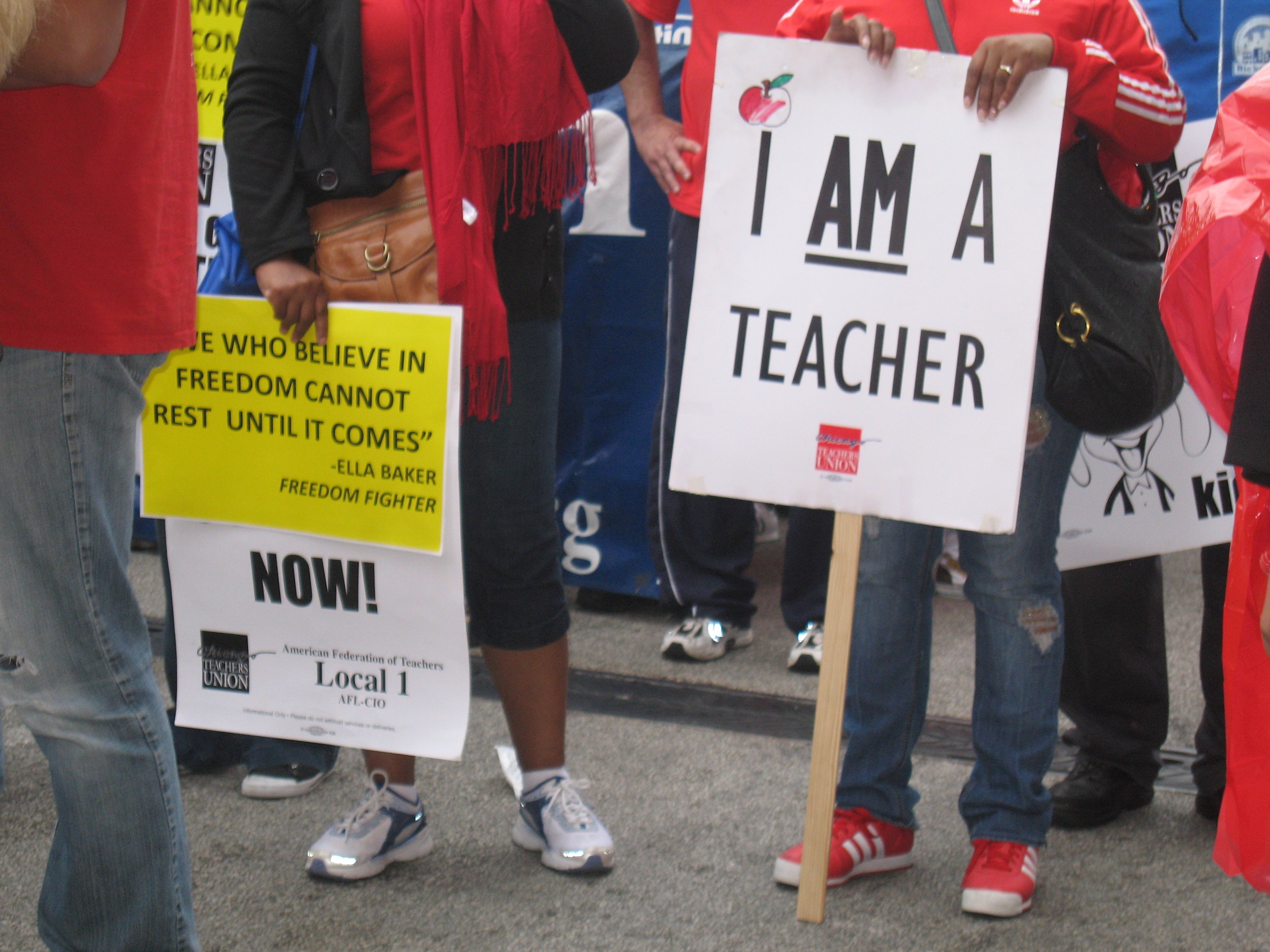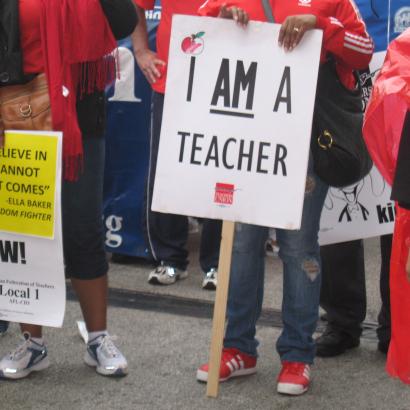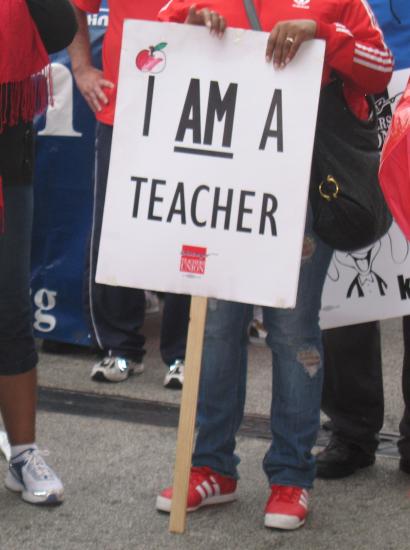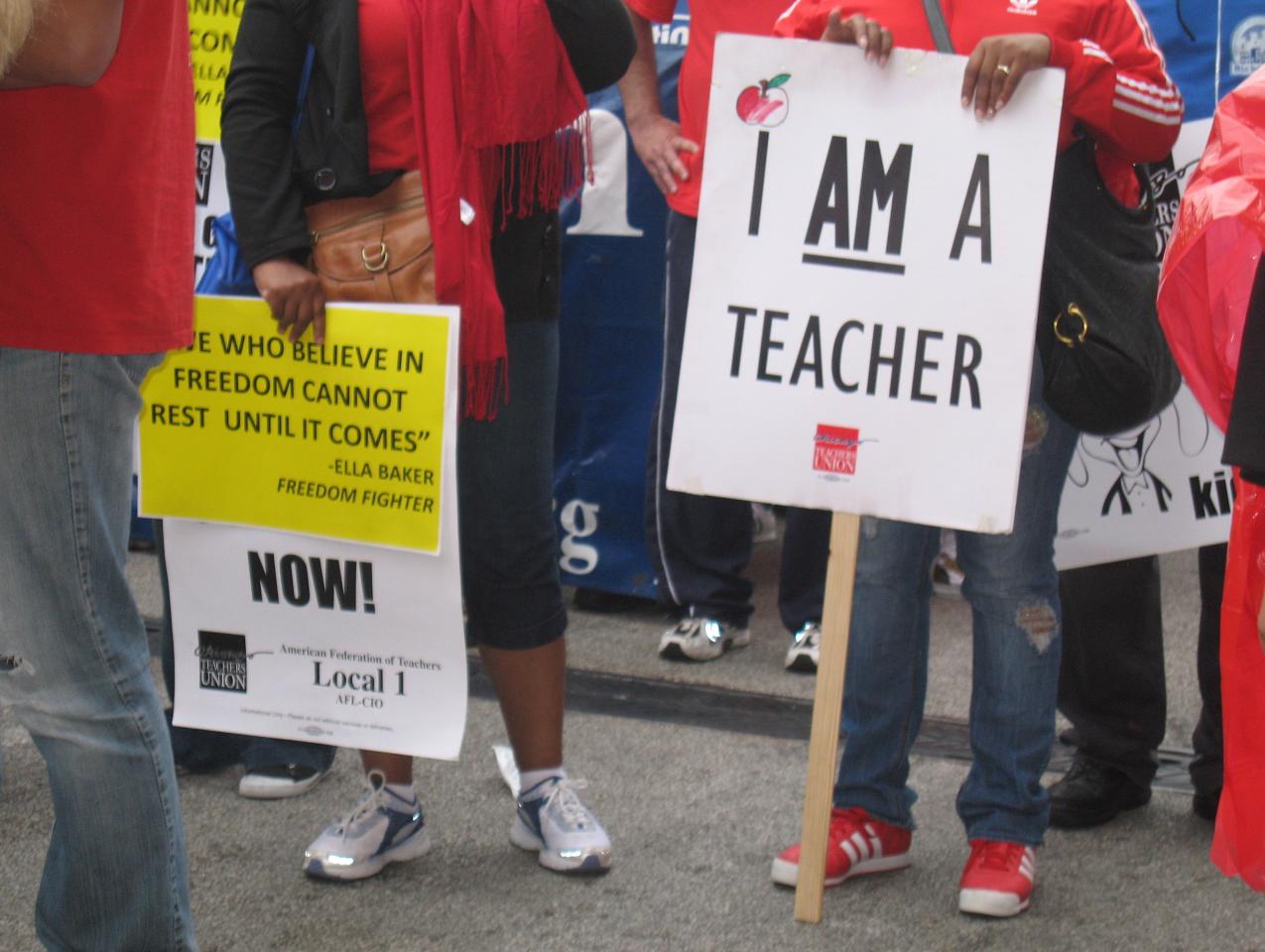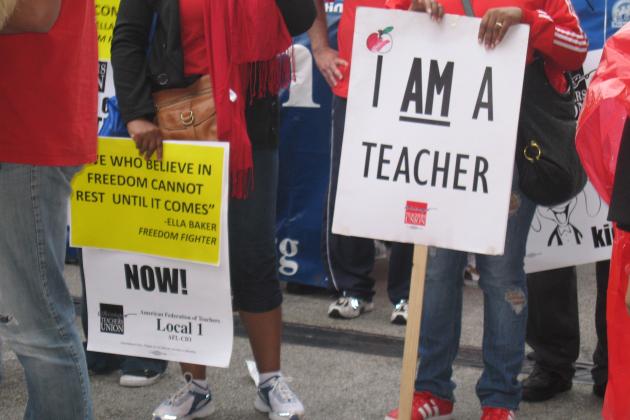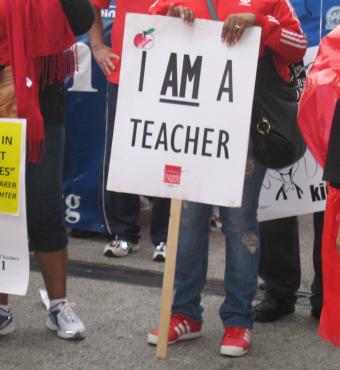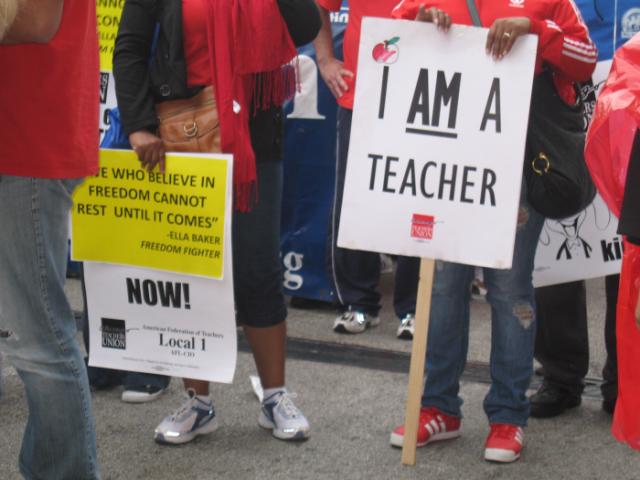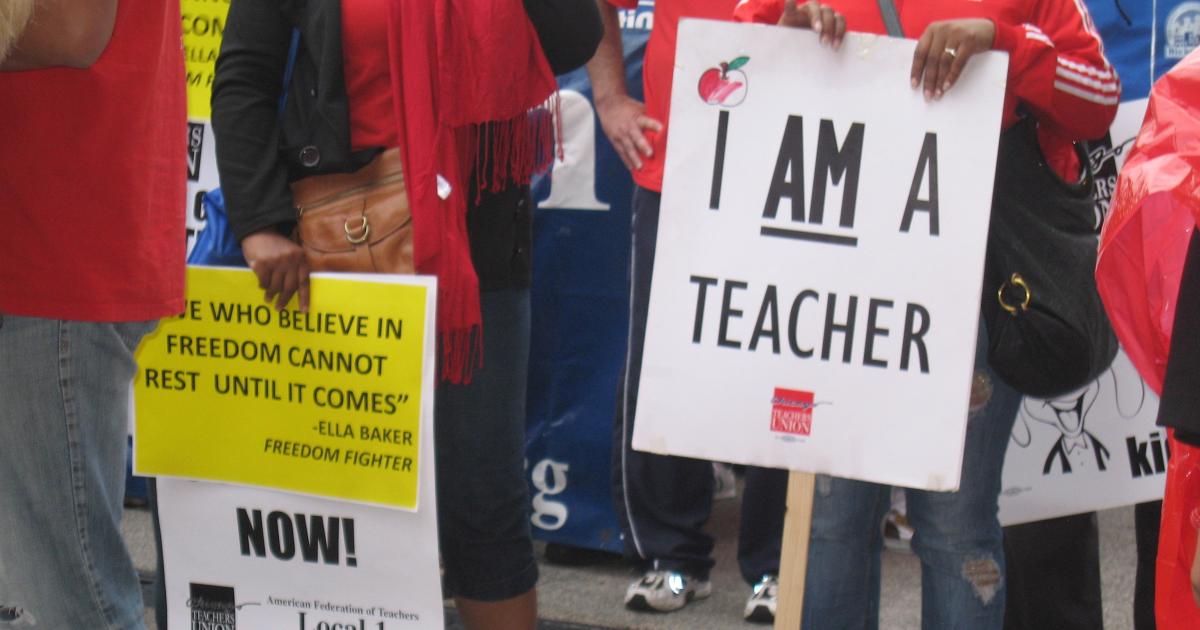- Politics, Institutions, and Public Opinion
The Chicago Teachers Union strike and the nationwide strike at General Motors are two troublesome signs of our nation’s increasing political instability. The losses suffered by all parties to these disputes will not be recouped going forward, no matter what the outcome. The difficulty here does not stem from the strategies adopted on either side of the bargaining table; it is that the current structure of management-labor relations requires the bargaining table at all. That “table” is symbolic of the monopoly power, protected by statute, that unions can exert on management in both the private and public sectors. Sadly, the resulting losses are borne not only by the immediate participants of these struggles, but also by students, parents, suppliers, coworkers, taxpayers, citizens, and so on. Their dislocations, though, are blithely dismissed by the unions as “incidental” damage.
The precise issues in most labor strikes vary in their particulars, but they all share several features in common. In the CPS strike, the teachers insist that they are out on strike not just for themselves, but for their students and coworkers. As Randi Weingarten, president of the American Federation of Teachers, has stated, “It’s about making the sacrifice to help create welcoming and safe environments for our kids and not taking ‘no’ for an answer.” But her protestations aside, the demands always look the same: salaries must be higher, class sizes must be reduced, and more nurses, social workers, and other staff must be hired. Questions of excessive job security and low public-school performance are never mentioned.
The Chicago Public Schools, for its part, is actually sympathetic to the teachers when it writes, “To honor the hard work and dedication of our teachers, CPS offers to raise their salaries by 16% or nearly $19,000. In five years, the average teacher will make nearly $100,000.” This covers a 42-week contract that the City, with its broken budgets and declining population, is ill-equipped to pay.
One way to test CTU’s dedication to the welfare of their students would be to ask about their opposition to charter schools, which, by any fair account, supply better value to both the students and Chicago at large. Some parents are taking flight from cities like Chicago to get their children out of poor performing schools, while others are anxiously waiting to get their children into charters. Fortunately, some states and cities are responding positively to the increased parental demand for quality education. For example, in Florida, as the Wall Street Journal recently observed, mainstream Republican governor Ron DeSantis has successfully expanded state vouchers, some 71% of which go to black or Hispanic students, with 87% of enrollees coming from families with incomes at or below 185% of the poverty line.
Florida’s reforms are just what Chicago needs. But the momentum in Chicago is moving in the opposite direction. In its initial offer, the CPS promised to impose a “moratorium” on new charter schools in Chicago. It seems the first order of business for both negotiating teams is to trap Chicago children in failing public schools. In a perverse way, this tragic outcome makes sense: charter schools not only challenge the power of the union, but they also reduce the opportunity for city officials to expand their own power base. But it is all a horrible mistake. The first duty of the City is not to its unions, but to its children and to the citizens who pay the taxes that allow its children to attend public schools. The only way for the City to discharge that duty is to wield a stick, not to give out carrots. The one nonnegotiable term in these negotiations should be the City’s ironclad commitment to expand the number charter schools because that will simultaneously increase school quality and reduce budget pressures.
The Chicago Teachers Union uses the rhetoric of social responsibility to extract monopoly profits from the City. CPS is so emotionally committed to the CTU’s progressive agenda that none of its counterproposals try to restructure the basic institutional arrangement. And if financial stability cannot be achieved with current finances, then, as Mayor Lori Lightfoot proposes, the City can raise taxes—this time on the restaurant industry, and next time on someone else.
By way of counterpoint, the GM strike shows how union power works out in the private sector. In their bargaining position, private unions face two major disadvantages that public unions do not encounter. First, their employers are not political allies of the union, and thus are far more faithful to their shareholders, to whom they owe a fiduciary duty than their employees, with whom they deal at arm’s length. Second, public employers are tethered to their geographical home while private employers are not. These firms can thus move their operations to other states, typically those governed by right-to-work laws, which are fiercely opposed by unions.
GM also knows that the United Auto Workers has been unable to crack the southern states with its multiple organizing drives. The reason is clear. Many workers know that lucrative union contracts may well help the senior workers who typically control union operations. But they also know that contracts that are too rich undermine the competitive strength of the firm in the long run, especially with the entry of strong foreign competition lacking the heavy legacy costs borne by the incumbent players.
At this point, the overall scorecard is clear: everyone loses. Ever since the GM strike started several weeks ago, the company’s profits have declined by at least $1.5 billion while workers on the line have lost hundreds of millions in wages, as well the portion of GM revenues that would have flown to worker profit sharing plans. Other GM plants not on strike have been forced to halt production because of the interruption to company supply chains. Faced with higher labor costs, GM is shutting down three plants while making more profitable investments in others. All the while, collateral damage is inflicted on businesses and families whose lives have been disrupted by these strike actions. Unions clearly care about their members only, and not their supposed “stakeholders.”
Negotiation breakdowns are always costly when they lead to work-stoppages, whether by strike or by lockout. The parties that initiate these maneuvers do so thinking that it is better to take a short-term hit than to endure a long-term loss. But these are partisan judgments, not social ones. The blunt policy truth is that every breakdown in management-labor relations is a negative-sum game. The operative question is just how the social losses will be distributed, both between the parties and to third party bystanders caught in the undertow.
The conventional response to these institutional breakdowns is to try to tweak the system in ways that dampen the impact. But that is a mug’s game. The basic problem is that in both the public and private sector, the passage of the National Labor Relations Act of 1935 has conferred on unions monopoly power by forcing employers to bargain with representative unions while prohibiting them from negotiating with any individual worker directly. This overall structure converts labor markets, which are highly competitive when unregulated, into government-supported monopolies, leaving management and labor locked in a deadly bargaining game.
Employers have nothing to gain from this shift but are unable to walk away from an institutional arrangement that adds to labor costs, imposes administrative nightmares, and holds the risks of strikes. Individual workers have to decide whether union representation is worth the cost. Given the persistent decline in private union membership, the evidence is clear that more and more workers think that unions do less good now that employment markets are global and the long-term trend of tariffs on imported goods has, at least until recently, been downward.
In an age of increasing progressive fervor, unions are more emboldened than ever. But the only way to deal with the underlying problem is to institute major reforms that keep employers from organizing cartels while allowing them to insist on direct negotiations with individual workers in competitive markets. As long ago as 1983, I took the position, to the dismay of union backers, that employers, both public and private, should be allowed to insist on the undivided loyalty of all their workers by requiring employees to sign the so-called yellow-dog contract, under which the employee agrees not to join a union while working with the employer.
It is easy to attack this proposal as being pro-employer and anti-worker. But it is neither. It is only meant to create competitive conditions that will bring an end to the turmoil and social waste which necessarily accompanies strikes and lockouts. Everyone but unions win when labor markets once again become competitive.







